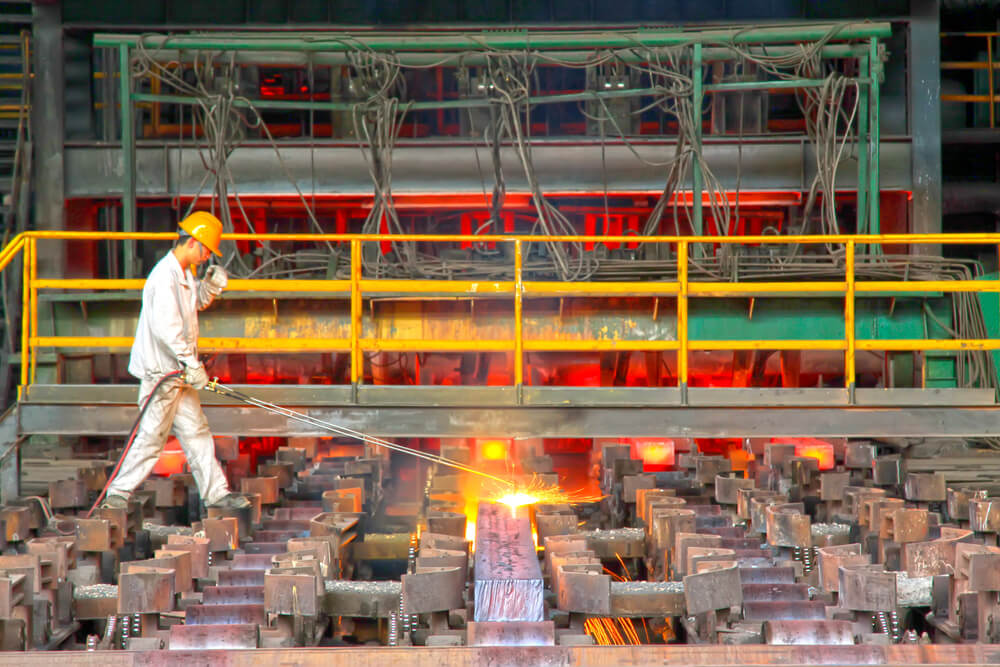One typically hears two stories about China and climate change. The first is that China leads the world in greenhouse-gas emissions as it continues to build more coal-fired power stations.
The second is that China leads the world in developing clean technologies that will allow all countries to decarbonize their economies at a far lower cost than seemed possible five or ten years ago.
Both stories are true, and policy in China and the rest of the world must reflect that reality.
In 2022, China emitted 15.7 gigatons of greenhouse gases, far more than America’s six gigatons or the European Union’s 3.6 gigatons.
While these absolute figures reflect China’s much larger population, its per capita emissions, at 11 tons, greatly exceed the EU’s 8.1 tons and the United Kingdom’s 6.3 tons; moreover, the latter two are on track to fall below 2 tons by 2040.
China has committed to achieve peak emissions by 2030 and net-zero by 2060; but this still implies that its cumulative carbon dioxide emissions between now and 2060 could be around 250 gigatons.
By contrast, current commitments from the UK and the EU imply about 4.5 and 45 additional gigatons, respectively.
Those 250 gigatons alone would use up much of the world’s remaining “carbon budget” that can be emitted while still limiting global warming to “well below 2°C,” as agreed in the 2015 Paris climate agreement.
That means average planetary temperatures in 2100 will be hugely influenced by what China does, and minimally by the EU or the UK.
Around 5.9 gigatons of China’s annual emissions come from a power system that remains dominated by coal, and China plans to add 280 gigawatts of coal-power capacity by 2029.
Moreover, emissions from its massive steel and cement sectors exceed 50% of the global total, though they are beginning to fall as construction declines.
The global leader in “green” technologies
But China is also the global leader in five key “green” technologies: solar photovoltaics, wind turbines, batteries, electric vehicles, and heat pumps – whose deployment could replace three-quarters of global fossil-fuel use and related emissions.
EVs now account for almost 50% of all passenger car sales in China, versus 23% in the EU and more than 10% in the United States; and electricity meets 32% of its final energy demand, versus 24% in Europe and the US.
In 2024, China installed around 400 gigawatts of solar and wind power, over half the global total.
While its coal capacity is still growing, these facilities are increasingly used as a flexible backup for renewables, with total power sector emissions falling 3% in the first half of 2025.
China’s massive clean-tech deployment has brought huge cost reductions and performance improvements
China’s massive clean-tech deployment has brought huge cost reductions and performance improvements.
Solar PV costs per watt have fallen 90% in 15 years, while production yields have increased; battery costs per kilowatt-hour also have plummeted, while energy density and charging speeds continually improve.
Such progress enables much faster emissions reductions, not only in China but around the world.
Already, solar-plus-battery systems are the cheapest way to provide round-the-clock electricity across most of the global sunbelt.
Africa, in particular, can now leapfrog past most of the fossil-fuel stage, rapidly expanding its cheap, clean electricity capacity to power economic growth.
Fears about jobs and security
In a world with no geopolitical tensions, China’s clean-tech leadership would be welcomed as a boon for humanity.
But given current political realities, it has instead fueled fears about jobs and security. Worse, tariffs and other trade restrictions imposed in response to China’s manufacturing dominance could increase the cost and delay the pace of the global energy transition.
Another source of tension is China’s overcapacity in iron and steel. Since these crucial inputs are still produced in a carbon-intensive fashion, they threaten to undermine Europe’s own commitment to decarbonize its heavy industry.
With the US having abandoned global leadership – especially on climate change – Chinese-European cooperation has become even more important
While the EU Carbon Border Adjustment Mechanism is a justified response to this threat, China initially saw it as protectionist.
Keeping global warming “well below 2°C” will therefore require coordinated action by all the countries attending this November’s United Nations Climate Change Conference in Brazil (COP30).
And with the US having abandoned global leadership – especially on climate change – Chinese-European cooperation has become even more important.
Europe should welcome China’s clean-tech leadership
With that in mind, Chinese and European leaders should focus on four priorities.
First, China must set more ambitious emissions-reduction targets for itself. If it does not, European populists who decry climate commitments as costly and pointless will likely garner more electoral support.
 China should do more to decarbonize heavy industry, by unleashing innovation in steel, cement, and chemicals
China should do more to decarbonize heavy industry, by unleashing innovation in steel, cement, and chemicals
But if China does heighten its ambitions, Europe should strengthen its own medium-term targets and policies to ensure it meets its long-term commitments.
Second, China should do more to decarbonize heavy industry, by unleashing innovation in steel, cement, and chemicals.
This will require steadily rising carbon prices applied across all industry sectors, ideally converging to European levels.
Third, Europe should welcome China’s clean-tech leadership, adopting a fact-based approach to competitiveness and security issues.
Following the Energy Transitions Commission’s recommendations, that would mean openness to imports of products that pose a minimal risk to European jobs (such as solar panels) and to Chinese inward investment in sectors such as batteries and EVs.
Lastly, Europe and China should work with other countries to unleash the flows of finance needed to accelerate clean-energy growth across Africa and in other low-income countries.
Chinese green-tech leadership has created an opportunity that the world cannot afford to squander. Europe must work with China to realize that potential.
Adair Turner, Chair of the Energy Transitions Commission, was Chair of the UK Financial Services Authority from 2008 to 2012.